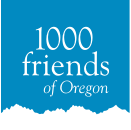By Mary Kyle McCurdy | 11 minute read
Originally published February 7. Last updated March 8.
The 2024 session of the Oregon Legislature began on Monday, February 5, and ended on Thursday, March 7. Because this is the short session, the legislature focused on a few key bills and budget items. These included some important land use issues.
The capitol building is under significant construction to address seismic upgrades and technology needs. Therefore, major parts of the building are not open to the public, and the building itself has capacity limits. People were able to testify remotely or in person for all committee hearings. Every committee webpage has instructions on how to do that, as well as how to submit written testimony.
Here are some key bills we engaged with this session, divided into our key advocacy areas, with bills organized within each section in alpha-numeric order:
Housing production
Natural and working lands
Transportation
Wildfire preparedness and resilience
Other threats to UGBs
We are no longer making updates to this page.
Subscribe to our emails for alerts and regular updates
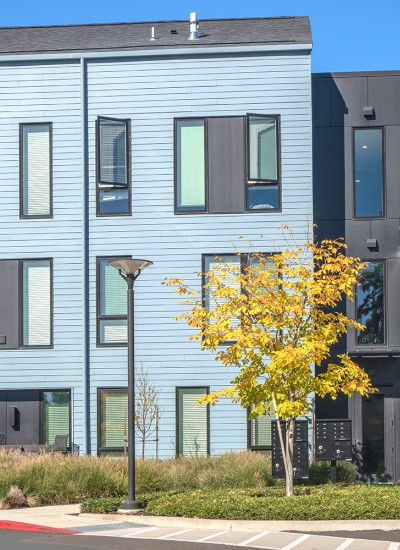
Housing production
1000 Friends of Oregon will be supporting bills that can quickly provide Oregonians the housing they need, where they need it. Every Oregonian deserves a home they can afford, that meets their family needs, and is well-located in a livable neighborhood near schools, stores, parks, transportation options, and more. Oregon is short approximately 140,000 homes for people who are living here today. Most of the housing we’re missing is for Oregonians with middle and lower incomes.
1000 Friends will oppose bills that include provisions overriding land use and environmental laws.
SB 1530 Funding for renter protections, housing stability programs, and infrastructure
Supported and passed
What it does: The SB 1530 base bill and the dash-3 amendment would provide funding to various housing programs in Oregon, directing funds to specific agencies and community organizations that run a variety of supportive housing programs, including:
- Renter assistance
- Housing stability programming
- Resident outreach
- Emergency shelters
- Housing preservation programming
- Land acquisition for affordable housing
SB 1530, with the dash-3 amendment, would also provide funding to help residents of affordable housing where the public funds for that housing are going away. This is a much-needed step toward a longer solution to preserve existing affordable housing.
The dash-3 amendment also includes $100 million in infrastructure funding to support housing development. We expect SB 1530 to be further amended to target those funds to specific infrastructure projects, inside UGBs, that are shovel-ready now. This will enable the $100 million to get out the door quickly and start getting housing on the ground.
Why it matters: Effective solutions to our housing crisis recognize that once people obtain housing, the next step is to help people stay housed. Oregon’s renters are heavily cost-burdened due to the price of housing outpacing wages. Rental assistance and other eviction prevention strategies can help reduce this burden. 1000 Friends has supported easing the siting of emergency shelters; this funding for continued operations and services can provide the first step toward getting people into more stable housing.
The dash-3 amendment, and an expected coming amendment, will provide critical infrastructure funding for housing development, and will help Oregon meet our housing goals. Funds would target housing projects that are otherwise ready to build, except for missing investment in water, sewer, sidewalks, and other infrastructure. This housing will be well-located, on lands already inside communities and near schools, stores, and parks. This allows those projects to be completed more quickly.
1000 Friends has been a strong advocate for infrastructure funding directed inside Oregon’s existing UGBs to unlock the thousands of acres of existing, vacant residential land in our towns and cities.
Status: This bill has passed in the House and Senate and will soon be on the governor’s desk to sign.
SB 1537 Housing at the edge
Opposed and passed
What it does: The base bill of Governor Kotek’s housing bill, SB 1537, includes two provisions we strongly support: creation of the Housing Production Accountability Office and revolving loan funds for housing. It also initially included good infrastructure investment tools, some of which have since been wrapped into SB 1530 and are no longer part of SB 1537 now that the dash-9 amendment is adopted.
SB 1537 also has a flaw we can’t support: provisions that would override land use and environmental laws. SB 1537 would allow cities to expand their UGBs by at least 50 or 100 acres for residential and other uses, without following land use laws, to allow private developers to build homes primarily for people with higher incomes. (That UGB expansion acreage is down from 75 and 150 acres thanks to the dash-9 amendment, which reflects effective advocacy work by community organizations and individual Oregonians).
Why it matters: This provision allows the private homebuilding industry to build more of what they have been building for decades – sprawling subdivisions at the city edges with housing that most Oregonians cannot afford, and that will also exacerbate climate change and wildfire risk to residents. (When will we learn to stop doing the same old thing and expect a different outcome?)
We are glad for the reduction in impact on Oregon's land use system resulting from the dash-9 amendment, but SB 1537 still allows UGB expansions that bypass those laws. Our mission is anchored on helping Oregon flourish through effective land use planning and so we still cannot support SB 1537.
The message is simple: Overriding land use and environmental laws will undermine our efforts to produce the housing Oregonians need, where we need it, and with the urgency our housing crisis requires of us.
- These UGB expansion areas will be competing with lands already inside UGBs for those scarce infrastructure dollars. That's not fair or helpful.
- Under SB 1537, all the housing in these UGB expansion areas could be for people making at or over 130 percent of area median income – even the so-called affordable housing portion of it could be satisfied with housing that will not meet the income levels of most Oregon families. While we need housing for Oregonians of moderate incomes, we also need even more housing for people whose incomes are well under that. We would like to see our collective policy and investment focus on building better for all Oregonians inside UGBs, near to jobs, schools, and stores.
Building at the edge increases climate change and wildfire risks to lives, livelihoods, and homes. - Building at the edge exacerbates inequality and racial and economic injustice. Housing policies and investments should open up existing neighborhoods to people who have been historically racially redlined and economically excluded from these areas.
Read more: “How we’ll solve our housing crisis (spoiler: it’s not by bulldozing our UGBs)”
Let’s focus on housing most Oregonains need: homes in existing neighborhoods for people with middle and lower incomes.
- Oregon’s cities already have more than 10,000 acres of vacant land, designated for residential use, inside their UGBs. These lands need investments in some or all infrastructure – roads, sewers, water, sidewalks – to unlock them for housing production.
- Investing in these lands is the most effective step the state can take now to unlock large parcels and get them “shovel-ready” to quickly produce housing.
How you can help: Remind your legislators of the critical role Oregon's land use program plays in building affordable, great towns and cities and protecting the state's farm and forest lands and iconic natural resources.
Status: This bill has passed in the House and Senate and will soon be on the governor’s desk to sign.
Testimony: Read our February 8 hearing testimony.
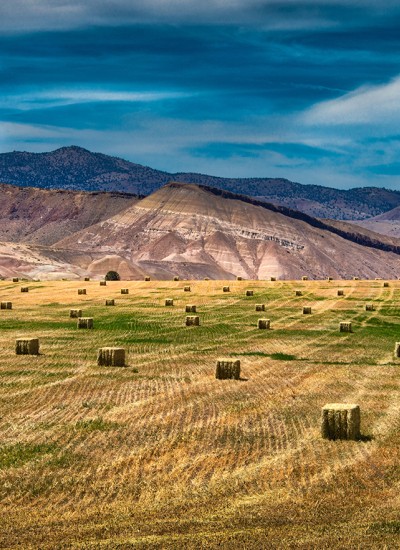
Natural and working lands
HB 4046 Too many buildings on farmland
Opposed & withdrawn
What it does: HB 4046 would have allowed an additional home on every tract of land outside UGBs if there is already one owner-occupied house on the land. The bill contains some conditions that limit initial occupancy of the home to defined family members and restricts its use as a short-term rental. However, if the family member moves out, the additional house can be used by anyone for up to one and a half years. If the property is sold, the original home no longer needs to be occupied by the owner of the tract. Finally, the county may approve converting the additional house to a “permissible nonresidential use" at any time.
Why it matters: This bill did not contain long-term safeguards to ensure it meets the stated goal of providing family housing on family-occupied farms (and the land use system already makes provisions for the people engaged in farming to live there). The bill also creates enforcement burdens that would be difficult for counties to comply with.
Status: This bill has been withdrawn and will not advance further this session.
HB 4060 Funding for Oregon Agricultural Heritage Program
Supported and stalled
What it does: 1000 Friends of Oregon supports HB 4060, which would provide $10.8 million for the broadly bipartisan-supported Oregon Agricultural Heritage Program (OAHP). These funds help keep Oregon’s farmland and ranchland in production, benefit rural economies, and protect lands that sequester carbon emissions.
Why it matters: The OAHP helps farmers and ranchers establish, protect, and maintain conservation easements on working lands, protecting Oregon’s food-producing lands for future generations. These conservation easements partner well with the land use program to provide long-term protection to Oregon’s irreplaceable farmlands.
OAHP is funded through the Oregon Watershed Enhancement Board (OWEB), which allocated the first $5 million in 2022, permanently protecting 12,480 acres of farmland and ranchland across the state. Because the program did not receive funding in the 2023 legislative session, more than $7.2 million in federal matching funding is in jeopardy.
Status: This bill was in the Joint Committee on Ways and Means when the session adjourned.
Testimony: Read our February 6 hearing testimony.

Transportation
SB 1572 Willamette Valley commuter rail study
Supported and stalled
What it does: SB 1572 would study the feasibility of extending TriMet’s WES (Westside Express Service) rail line from its current southern terminus in Wilsonville for 31 miles to Salem, with stops in Donald, Woodburn, and Keizer. The bill would require ODOT to report back to the legislature in December 2024 with findings and recommendations. The route would use the former Oregon Electric Railway line, now owned by Portland & Western and BNSF railroads.
Why it matters: This rail extension would ease congestion on I-5, reduce carbon emissions, and provide mobility options for Oregonians, not only for commuters but also for seniors and people who cannot or do not drive.
Status: This bill was in the Joint Committee on Ways and Means when the session adjourned.
Testimony: Read our February 13 hearing written testimony and February 13 hearing oral testimony.
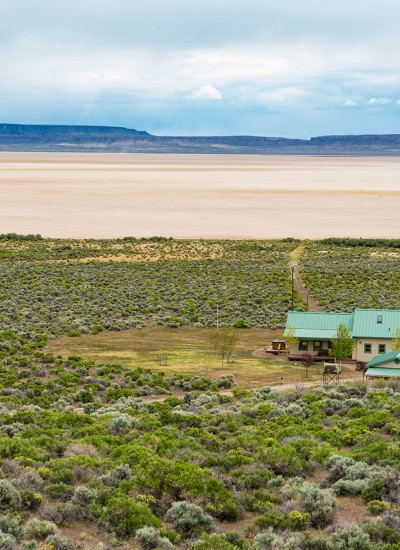
Wildfire preparedness and resilience
SB 1511 Voluntary neighborhood protection cooperatives
Supported and stalled
What it does: SB 1511 directs the Oregon State Fire Marshal (OSFM) to establish a neighborhood protection cooperative grant program and establishes a fund to support it. The OSFM will, with the Department of Consumer and Business Services and the State Forestry Department, develop criteria for awarding grants to local governments, organizations related to fire districts, nongovernmental organizations, and property owners. The criteria for eligibility may include preferences for property owners in neighborhoods with high wildfire exposure, with identifiable social and economic barriers, and that are likely to be successful in implementing wildfire risk-reduction measures.
Status: The bill was in the Joint Committee on Ways and Means when the session adjourned.
Testimony: Watch our February 8 oral testimony.
SB 5701 Wildfire preparedness and resilience investments
Supported and passed
What it does: 1000 Friends support bills that provide programming and funding for neighborhoods, communities, and the state to engage in community risk reduction, including establishing and maintaining defensible space. We expect some of this funding to be in an overall budget bill.
Why it matters: Wildfire is a natural part of the Western ecosystem, but climate change and exurban sprawl are causing larger and more frequent wildfires. We can learn to live safely with wildfire, provided we take certain steps to reduce our carbon emissions, reduce sprawl, and collectively invest in actions like creating and maintaining defensible space around our homes and communities, home hardening especially for those who are socially and economically vulnerable, plan for evacuation and response routes, and more.
Status: This bill has passed in the House and Senate and will soon be on the governor’s desk to sign.
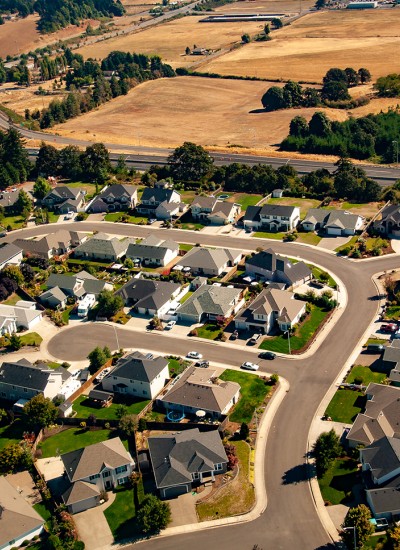
Other threats to UGBs
HB 4048 UGB expansions without regard for land use laws
Opposed & stalled
What it does: HB 4048 would allow any city to expand its UGB by 75 or 150 net residential acres, with no eligibility requirements, and eliminates meaningful county involvement in an expansion. The densities allowed in the UGB expansion areas would be even lower than those allowed by SB 1537. This would allow expensive, climate-unfriendly, exurban sprawl of four or eight dwelling units per acre in most of the state (or a very low 15 units per acre in the Metro area).
Why it matters: HB 4048 has many of the UGB expansion flaws of SB 1537 and more, and it contains none of the beneficial elements of SB 1537. Its efforts to increase sprawl also would increase the cost of the housing and exacerbate the negative impacts of climate change and wildfire risk.
Status: Because the bill was not scheduled for a hearing, it will not move forward this session.
This page will updated as the session goes on.
